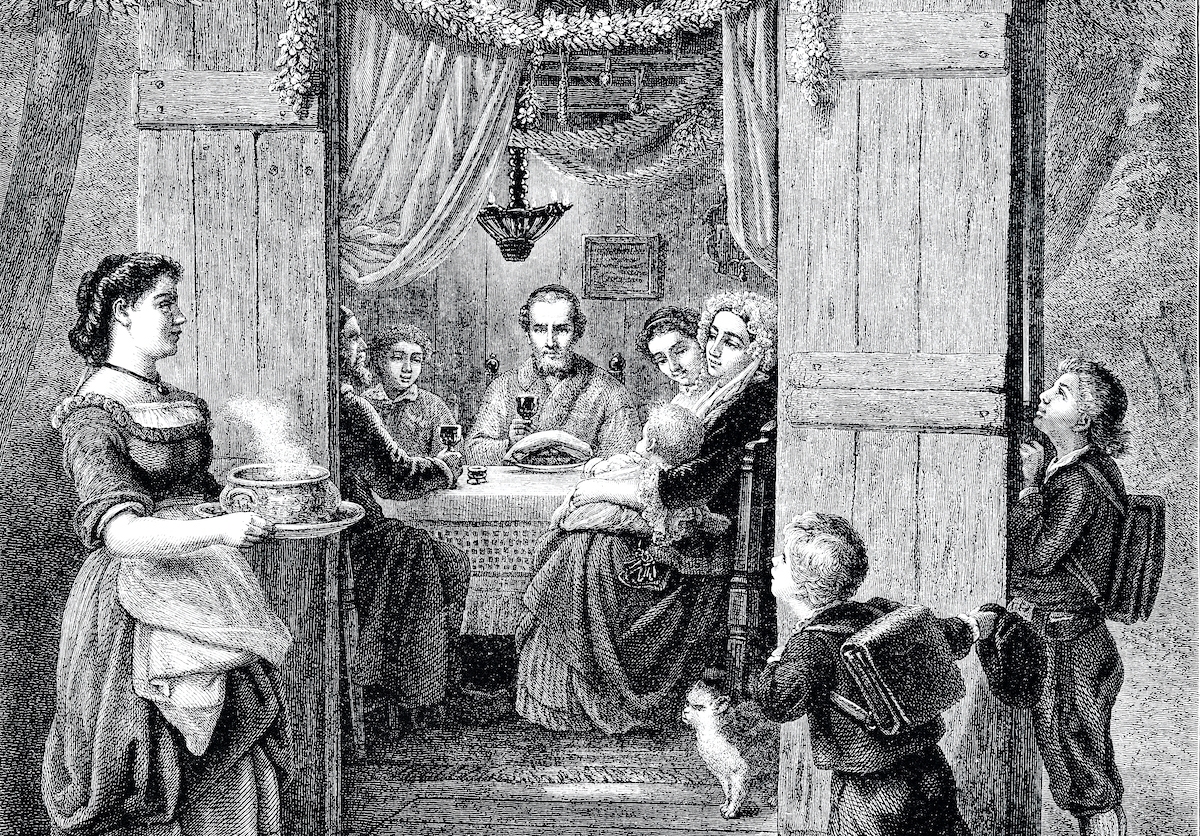Ushpizin (pronounced oosh-pee-ZIN) is the Aramaic word for “guests” and refers to a short prayer recited on each night of Sukkot inviting one of seven Jewish forbearers to join us in the sukkah.
Traditionally, the seven guests are the three patriarchs — Abraham, Isaac and Jacob — along with Moses, Aaron, Joseph and King David. They are referred to as the “seven shepherds of Israel” because they guided the spiritual development of the Jewish people as the shepherd guides the flock — not only in their lifetimes, but for all of Jewish history.
In modern times, it has become customary in some circles to add the names of important Jewish women whose influence has been commensurately significant. The specific women, and the order in which they are invited, aren’t as universally established as the men, but often include major female biblical figures such as Sarah, Rachel, Ruth and Esther. (One version of an egalitarian Ushpizin service can be found here.)
The practice of Ushpizin is first mentioned in the Zohar, the primary text of Jewish mysticism, but the custom of actually welcoming them into the sukkah seems to have emerged later under the leadership of Rabbi Isaac Luria in the 16th century. In the kabbalistic rendering, each of the seven Ushpizin correspond to one of the seven lower sefirot, the divine emanations or attributes. For Abraham, this quality is chesed, or lovingkindness. For Isaac, gevurah (strength); Jacob, tiferet (beauty), Moses, netzach (eternity); Aaron, hod (majesty), Joseph, yesod (foundation); and David, malchut (kingdship). Egalitarian versions of the Ushpizin ritual commonly pair a female figure with each of these sefirot as well.
With your help, My Jewish Learning can provide endless opportunities for learning, connection and discovery.
According to the Zohar, on Sukkot the Ushpizin leave their heavenly abode and reside with us spiritually in the sukkah. As the text of the prayer makes clear, all of the Ushpizin visit the sukkah on every night of the holiday, but a different one is preeminent on each night — and their particular spiritual quality is also uniquely accessible.
The prayer begins with this:
Sit, sit, lofty guests. Sit, sit holy guests; sit, sit guests of faith. Worthy is Israel’s portion, as it is written in Deuteronomy 32:9, ‘For the Lord’s portion is His people, Jacob His allotment.’
The main body of the prayer asks for God’s presence to reside in the sukkah, to spread out a “sukkah of peace” upon us in the merit of the fulfillment of the commandment to reside in a sukkah for seven days. The prayer also invokes the merit of “going out of one’s house” on Sukkot, which reflects a teaching that each of the seven Ushpizin undertook an act of departure that enabled them to fulfill their particular destiny.
Abraham, for example, left his father’s house for a strange land at God’s command. Joseph was sold into slavery in Egypt. And Moses fled Egypt for Midian where he encountered God at the burning bush. Just as the Ushpizin left that which was familiar and comfortable in the service of God’s command, so do we on Sukkot leave the security of our homes for an impermanent hut at God’s direction.
The final part of the prayer changes depending on the night, inviting the particular guest associated with that night along with all the other Ushpizin.
The Ushpizin ritual also evokes the more earthly obligation of hosting guests in our homes, particular on Shabbat and festivals. Welcoming guests is a universal Jewish value. But on festivals, this obligation is especially pronounced. As Maimonides writes about the laws of festivals in the Mishneh Torah:
While eating and drinking, one must feed the stranger, the orphan, the widow, and other poor unfortunates. Anyone, however, who locks the doors of his courtyard and eats and drinks along with his wife and children, without giving anything to eat and drink to the poor and the desperate, does not observe a religious celebration but indulges in the celebration of his stomach.
Some Sephardic Jews even have a custom of leaving an empty chair in the sukkah for that night’s guest, a ritual evocative of the cup of Elijah that is placed on the Seder table on Passover. Some also have the custom of donating the Ushpizin’s food to the poor, sometimes in the form of an equivalent donation to charity.



